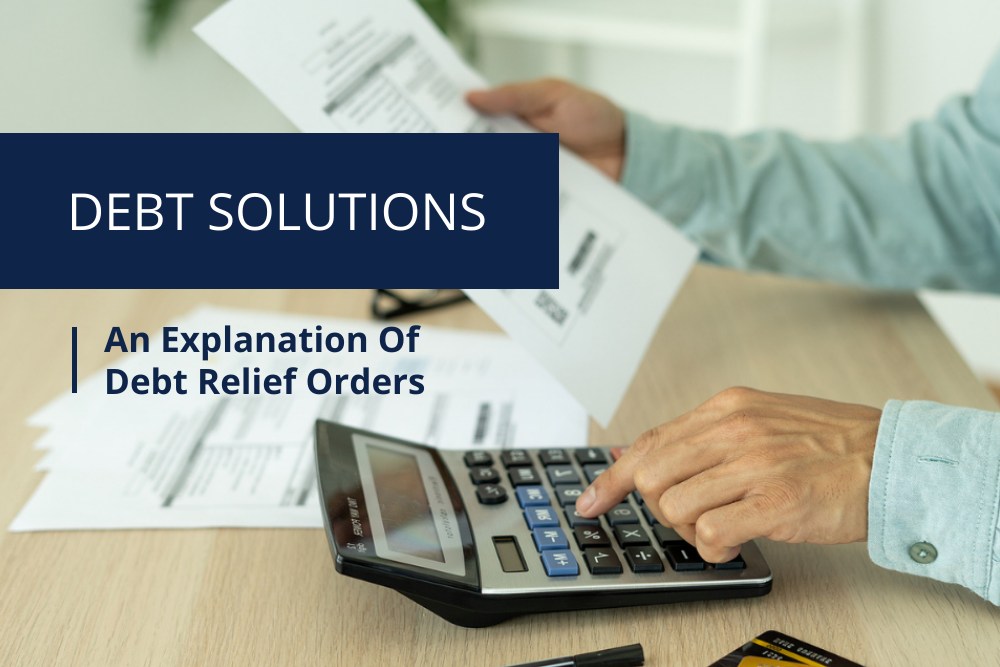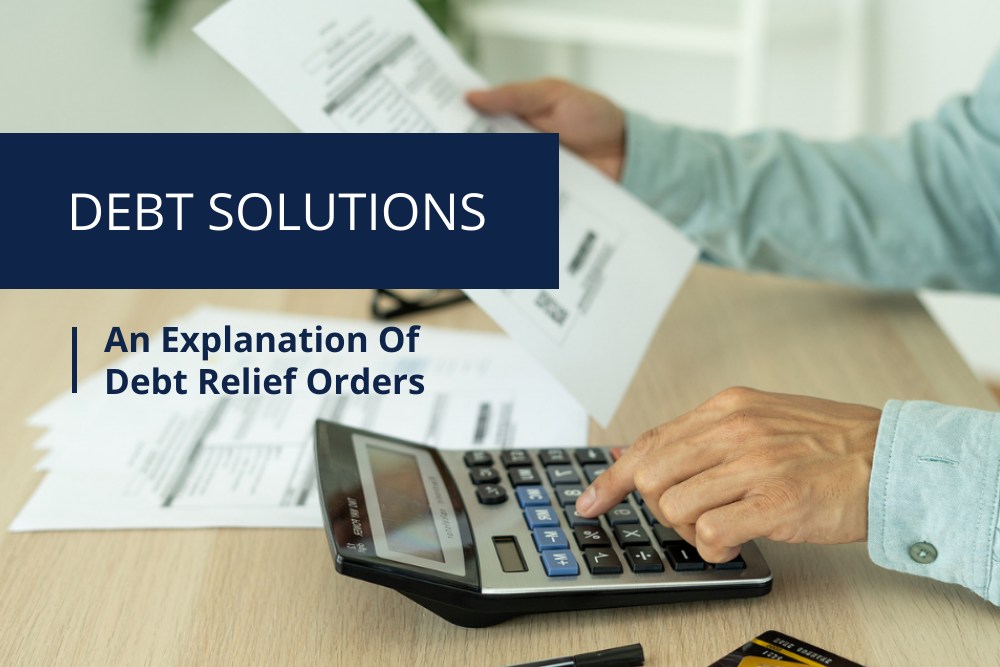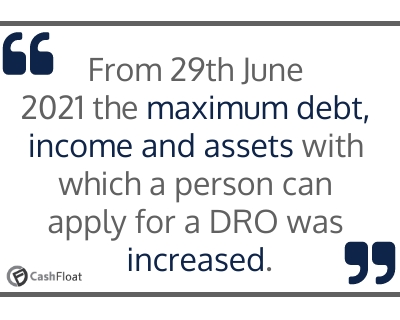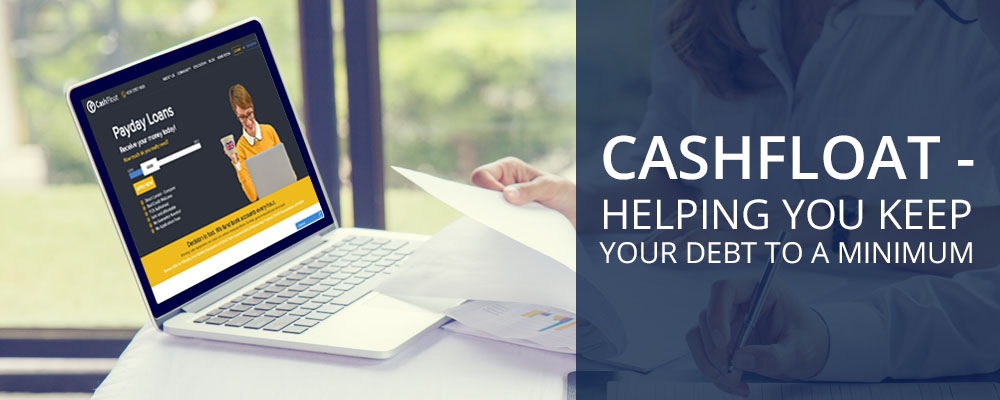Wondering which debt solution is right for you? In this article, the Cashfloat team explores debt relief orders and who they are a good solution for.


Cashfloat is a payday loans provider in the UK, aiming to provide a responsible and transparent loan service. We take our customers’ safety very seriously and are, therefore, keen to educate them on how to stay out of debt and what to do if they find themselves in debt distress. Our goal is to help our customers with their finances so that they no longer need us! In this article, we help you understand debt relief orders. We will explain what they are and whether to apply for one and, also, answer some of the frequently asked questions about them.
Seek Debt Advice First
If you are in debt and are looking at ways to get out of it, then the best place to get advice is from a professional and impartial charitable organisation like the Citizens Advice Bureau or one of the dedicated debt charities, such as Stepchange or National Debtline. Before you decide to pursue a debt relief order make sure that you have talked it through with an expert and that you are making the right decision.
Be wary of advertisements you see for debt management companies. It is important to remember that these are companies that are in the business of making profits and will not have your best interests at heart. It is always better to seek advice from an impartial advisor than to take it from someone who is looking to profit from your situation.

What Is A Debt Relief Order
A Debt Relief Order (DRO) is a debt solution for people who have debts that are less than £30,000 and, also, have few assets and only a small amount of disposable income. They are available to people who live in England, Wales and Northern Ireland, but not to people who live in Scotland. People who live in Scotland can apply for minimal asset process bankruptcy, which offers a similar solution, instead. For people who own their own home this debt solution will be of no use as their home will be counted as an asset.
A debt relief order is not an easy fix to a debt problem, but it can provide a solution to people who are unable to repay their debts. A charitable debt management service is the best place to seek advice on whether this is the best way forward if you are struggling to repay your debts.
The Benefits of a Debt Relief Order
Applying for a debt relief order effectively offers an alternative to bankruptcy. If you qualify for a DRO, you will pay nothing towards your debts for a year and interest rates and charges will be frozen. If your financial situation has not changed after that period of time your debts will be written off. No creditor can come after you for debts during the 12 month period and, unless your DRO is cancelled, after that period you will no longer have any of the debts which were covered by it. Even though this is a formal arrangement there is no necessity to appear in court.
For people who are really unable to pay their debts, a debt relief order can offer a way to escape the situation.
The Drawbacks of a Debt Relief Order
While a debt relief order can offer a solution to debt, they do have drawbacks. Debt relief orders are only available to people who are truly unable to repay their debts in any reasonable amount of time.
As we already mentioned, a DRO can only be sought if the amount you owe is below £30,000. You must also not have assets worth more than £2,000 and a car which is not worth more than £2,000. Your surplus income must also not be more than £75 per month. As such, DROs are only available to people who have no realistic means to repay their debts. There is also a one off fee of £90 that you have to pay to the Insolvency Service when you apply for a DRO.
On top of this, not all debts can be covered by a debt relief order. Certain debts, such as criminal fines and child maintenance arrears are excluded. Even after a DRO is obtained, these debts will still be owed. After you have a debt relief order granted then it will be added to the Individual Insolvency Register and your credit report will be negatively affected as a result.
Who is Eligible to Apply for a Debt Relief Order?
There are certain criteria that you have to meet in order to be able to apply for a debt relief order:
- The total amount of debt must be below £30,000
- After you have paid your household bills and living expenses, you must have less than £75 left each month
- You cannot own your own home
- Any assets you have, must be worth less than £2,000. This doesn’t include essential household items, like cooking equipment, or items you need for work, such as tools. However, it can include possessions you have, such as jewellery or computers.
- You must not have a domestic vehicle worth over £2,000 (unless it has been adapted for a disability). This is allowed on top of your asset allowance of £2,000. Vehicles used for business purposes can also be counted as an asset and can prevent you from taking out a DRO if they are worth over £2,000.
- You must have lived in or run a business in England, Wales or Northern Ireland for the last three years.
If you have previously applied for a debt relief order in the last six years then you cannot apply for another one. Also, if you are subject to bankruptcy or individual voluntary arrangement proceedings then you will also be ineligible for a debt relief order.


If Your Circumstances Change During the 12 Month Period
If, during the 12 month period that your debt relief order is in place, your circumstances change so that you no longer meet the criteria to receive a DRO, it may be revoked. This could be if your income improves so that you have over £75 of disposable income per month or if you receive a lump sum of money or any assets.
On top of the normal criteria for making an application, there are also some considerations that relate to your recent activity that you should consider. Read on to find out more.
A Declaration of Recent Activities
If you have had any assets, money or property, even if they are just expensive belongings, and have given them away or sold them for less than they are worth in the last two years, you have to declare this in your DRO application. Your application could be declined if you have done so. Similarly, if you have been seen to favour some of your creditors by repaying them in the last two years this could also lead to your application being declined.
How Do You Apply for One?
You can only apply for a debt relief order through an approved intermediary and so it is not possible to make an application yourself. Many charities, such as StepChange, can act as an intermediary without charging a fee.
Which Debts Does a Debt Relief Order Cover?
There are only certain types of debt that you can be included in a debt relief order and only those that you obtain legally can be written off by one. Debts which can be included are:
Which Debts Does a Debt Relief Order Not Cover?
While a debt relief order can offer a solution to debt, they do have drawbacks. Debt relief orders are only available to people who are truly unable to repay their debts in any reasonable amount of time.
There are a number of debts that you cannot include in a debt relief order. Debts which can’t be included are:
You will still be liable for these debts and will need to pay them back while your DRO is in place.
You must declare all of your debts when you sign up for a debt relief order. If you forget to include any, you won’t be able to add them after it has started and you will have to repay them yourself. If an additional debt takes your total debt over the allowed limit of £30,000, your DRO could be revoked.
What About Debts Obtained Fraudulently?
If you have obtained any debts fraudulently, they won’t be written off by a debt relief order and you will need to repay them. However, they will count towards the maximum debt limit of £30,000.
What are the Consequences of Applying for a Debt Relief Order?
Receiving a debt relief order, while it is not as severe as bankruptcy, has some similarities to going bankrupt. There are strict restrictions imposed on you while your DRO is in place and it will affect your credit rating afterwards. During the year that your DRO is in place, you cannot borrow more than £500 without disclosing the existence of the order to your prospective lender. Also, you cannot become involved in setting up a limited company or act as a company director without permission from a court. On top of this, if your business was subject to the DRO, you cannot carry on business under a different name without revealing that your previous business was subject to a DRO.
Debt Relief Orders and Your Credit Rating
The major drawback to receiving a debt relief order is the effect it will have on your credit rating. Whilst the debt relief order remains in force and for three months afterwards, your name will appear on the Individual Insolvency Register. Your financial options could be severely limited while you are on the register. On top of this, your DRO will then stay on your credit report for 6 years. This can have a serious impact on your ability to borrow money in that time, e.g. if you are looking for a mortgage. After you have been given a DRO you will need to repair your credit rating and this could take a number of years.


Debt Management Companies and Debt Relief Orders
The long term consequences of applying for a debt relief order and the strict criteria that you must fit can make them unappealing. You may find debt management companies, which claim to offer alternative and better solutions.
If you find yourself swamped with debt and afraid of applying for a debt relief order, it may look as though they are the answer to your prayers. However, it is best to seek advice from an impartial advisor, such as a debt charity rather than to put your trust in the hands of a company who are looking to profit from your situation.
Recent Changes to Debt Relief Order Eligibility
On 29th June 2021 the eligibility criteria for debt relief orders was changed. On this date, the maximum total amount of debt, assets and spare income with which a person could apply for a DRO was increased. This change has meant that many people who were previously on a debt management plan or had made their own payment arrangements with their creditors could be able to apply for a DRO instead. In many cases, it will be better for a person to be on a DRO than on a debt management plan or to be paying under their own payment arrangement that they have made with their creditors. If it is possible that these changes could affect you, you should speak to an impartial debt advisor and see if this is the case.
In Summary
Debt relief orders effectively offer an alternative to bankruptcy for people who are truly unable to repay their debts. If you have very few assets and very little disposable income, applying for a debt relief order could provide you with a solution. Charitable debt management advisors, such as Christians Against Poverty or StepChange are usually the best people to speak to if you are wondering whether you should apply for a debt relief order. While there are consequences to having a DRO, they are an option that can lead to financial freedom.

